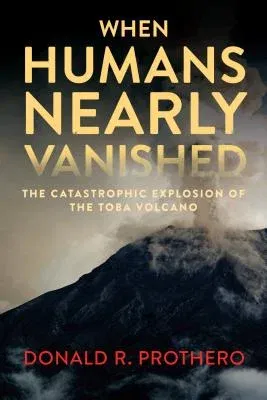The fascinating true story of the explosion of the Mount Toba
supervolcano--the Earth's largest eruption in the past 28 million
years--and its lasting impact on Earth and human evolution
Some 73,000 years ago, the huge dome of Mount Toba, in today's Sumatra,
Indonesia, began to rumble. A deep vibration shook the entire island.
Jets of steam and ash emanated from the summit, followed by an explosion
louder than any sound heard by Homo sapiens since our species evolved
on Earth. The eruption of the Toba supervolcano released the energy of a
million tons of explosives; seven hundred cubic miles of magma spewed
outward in an explosion forty times larger than the largest hydrogen
bomb and more than a thousand times as powerful as the Krakatau eruption
in 1883. So much ash and debris was injected into the stratosphere that
it partially blocked the sun's radiation and caused global temperatures
to drop by five to nine degrees. It took a full decade for Earth to
recover to its pre-eruption temperatures.
When Humans Nearly Vanished presents the controversial argument that
the Toba catastrophe nearly wiped out the human race, leaving only about
a thousand to ten thousand breeding pairs of humans worldwide. Human
genes today show evidence of a genetic bottleneck, an effect seen when a
population of organisms becomes so small that their genetic diversity is
greatly reduced. This group of survivors could be the ancestors of all
humans alive today. Donald R. Prothero explores the geological and
biological evidence supporting the Toba bottleneck theory; reveals how
the explosion itself was discovered; and offers insight into how the
world changed afterward and what might happen if such an eruption
occurred today. Prothero's riveting account of this calamitous
supervolcanic explosion is not to be missed.

